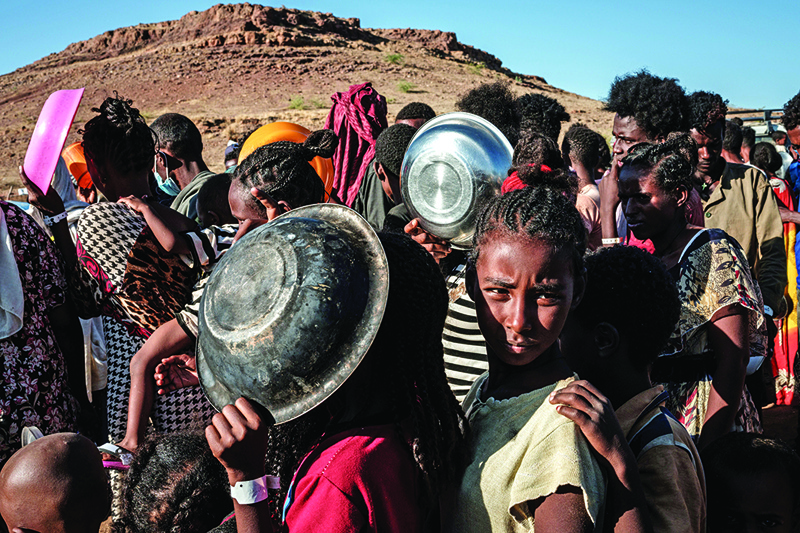
ADDIS ABABA: Ethiopia said yesterday that power and phone connections had been partly restored in Tigray, where civilians spoke of deprivation, fear and violence in the troubled region after six weeks of silence. Tigray has been under a communications blackout since November 4, when Prime Minister Abiy Ahmed ordered a major military offensive against the ruling party of the dissident northern region.
The shutdown, coupled with restrictions on access to the region, made verifying the situation on the ground difficult as the army battled forces loyal to the Tigray People's Liberation Front (TPLF). Abiy, the winner of last year's Nobel Peace Prize, visited the regional capital Mekele on Sunday for the first time since fighting began. He met with soldiers and said that damaged telecommunications and other key infrastructure were being repaired.
As the blackout lifted, civilians inside the city of half a million spoke of the joy of hearing loved ones for the first time in weeks-and their desperation at trying to locate others in areas still in the dark. "When communication came back, I felt really great, because family and friends from abroad and even locally, they were not sure whether I was alive or dead," said Mulubirhan Hailemariam, who spoke with AFP from Mekele. "But I'm worried about my family in Adigrat," he added, referring to another city in Tigray where communications have not been fully restored.
People are being killed
The government said yesterday that mobile voice services had been restored to about half a dozen other cities besides Mekele, but that reliable power remained a problem outside the capital. "The lights came on Sunday, while on and off, telecom services were working since Sunday. My immediate family is safe, but I don't have information on the safety of other family members living in other parts of Tigray," said one woman, a business owner, who requested anonymity.
Abiy declared victory over the TPLF on November 28 with the capture of Mekele, which he said was achieved without incurring civilian casualties. But civilians in Tigray told AFP that soldiers patrolling the streets of the capital had violently enforced a dusk curfew.
"The Tigrayan people are being abused. In the evenings, in the name of law enforcement, people are being killed," said Mulubirhan, who alleged Eritrean soldiers were among the uniformed troops present in Mekele. "I personally attended the funeral of three people. But I know many more people that were killed by Ethiopian security forces, mostly soldiers, when they allegedly broke the curfew." Zadig Abraha, Ethiopia's democratization minister, told AFP that any reports of extrajudicial killings by Ethiopian soldiers were "false".
War is just starting
Other Mekele residents contacted yesterday reported looting and arbitrary executions, as well as a drastic shortages of supplies, with shops boarded up and businesses yet to reopen. "The view in Mekele city is that the war is just starting and things are only going to get worse," said one man, who declined to be named, describing ongoing battles outside the city limits.
Abiy last week dismissed reports of ongoing hostilities as "sporadic gunfire" as the army hunts down militias and special forces allied to the TPLF. "We will continue apprehending the criminal clique," Abiy posted on Twitter late Sunday, accompanied by images of his visit to Mekele. Abiy has resisted calls for mediation to end the conflict, which has left thousands dead, according to the International Crisis Group think tank, and driven 50,000 refugees into Sudan. Sudanese Prime Minister Abdalla Hamdok announced Sunday that Abiy had agreed to hold an urgent meeting of a bloc of East African countries to resolve the crisis, but Addis Ababa is yet to formally respond.
State media reported at the weekend that the provisional administration appointed to oversee Tigray was urging civil servants and businesses to return to work yesterday. The head of the administration, Mulu Nega, was also quoted as saying that anyone in Tigray in possession of a weapon-legal or illegal-should turn it over to security forces by today. - AFP










